European Natural Gas Prices Jump as Sanctions Spur Energy Shortage Concerns
(Bloomberg) -- European natural gas surged after another round of international sanctions on Russia over the weekend amplified concerns about energy shortages.
Futures jumped as much as 36% on Monday after Western nations agreed to impose stronger penalties because the initial ones failed to persuade President Vladimir Putin to withdraw his forces from Ukraine. The new sanctions exclude energy, but they could force buyers, financiers and shippers to stay away from Russian flows. Meanwhile, there are fears Moscow could retaliate by cutting supplies. Stricter restrictions also may follow.
Europe relies on Russia for about a third of its gas, with many of those shipments flowing through pipelines crossing Ukraine. Any disruption could leave Europe freezing in the winter and curb the continent's electricity production, forcing energy-intensive industries such as metals smelters and fertilizer makers to slow or shut their output.

The additional sanctions may prompt retaliation from Russia, which could cut energy imports to Western Europe, Neil Shearing, chief economist at Capital Economics, said in a report.
Under the sanctions, some Russian lenders will be excluded from the SWIFT bank messaging system used for trillions of dollars worth of transactions around the world. The penalties also will target the central bank's foreign reserves. Some banks already are pulling back financing for the trading of commodities, including oil and metals, from Russia, a move that could roil markets.
The sanctions will substantially reduce the ability of Russia's central bank to sell foreign assets to support the ruble, Shearing said. It also will curb the ability of Russian firms to service forex-denominated liabilities.
If Russia's central bank assets are frozen, it no longer will make sense for the country to export more than it imports, Jeff Currie, head of commodities research at Goldman Sachs Group Inc., said on Bloomberg TV.
Even though the fresh sanctions dont target Russia's ability to sell energy, the toxic environment could see dealings, including gas, being avoided, said Ole Hansen, head of commodities strategy at Saxo Bank A/S.
But the U.S. has said sanctions could still be imposed. Energy sanctions are certainly on the table,White House Press Secretary Jen Psaki said on ABC's. This Week on Sunday. “We have not taken those off, but we also want to do that and make sure we're minimizing the impact on the global marketplace and do it in a united way.
European buyers are looking to wean themselves off Russian gas by building LNG terminals, and Germany stopped approvals for the controversial Nord Stream 2 pipeline and extended its use of coal. But new projects take years to construct. For now, the continent remains deeply dependent on Moscow for energy, particularly gas, and any disruption to flows could slow the refilling of depleted storages in the summer and result in another supply crisis next year.
Germany's move to build two LNG terminals further supports the view that as long as Putin controls Russia, the Nord Stream 2 will be dead in the water, Hansen said.

Dutch front-month futures were 9.6% higher at 103.5 euros a megawatt-hour as of 11:58 a.m. in Amsterdam. The U.K. equivalent was 11% higher. Concerns that industrial activity will slow down sent carbon prices plunging as much as 9.1% to 80.12 euros a metric ton.
German power for next year, a European benchmark, rose as much as 13%. Day-ahead prices there and in France jumped in broker trading as wind generation is set to decline Tuesday. Wind power is forecast to remain low for the rest of the week, leaving Europe more reliant on expensive gas and coal to meet demand. Near-term weather forecasts also are driving prompt gas prices with U.K. day-ahead gas prices up 22% to 255 pence a therm as of 11 a.m. in London.
So far, Western nations have excluded Russian commodity exports from sanctions, said Mark Haefele, chief investment officer for global wealth management at UBS Group AG. But positions are shifting fast, and Western nations have already begun implementing measures that seemed unlikely a few days ago, and the White House has stated that energy sanctions are on the table.
The risk of supply disruptions is set to be discussed by European Union energy ministers at an emergency meeting in Brussels later Monday. Separately, officials from Kyiv plan to meet Russian counterparts even though Ukrainian President Volodymyr Zelenskiy voiced skepticism that talks near the Belarus border would yield results.
More stories like this are available on bloomberg.com
©2022 Bloomberg L.P.
KEEPING THE ENERGY INDUSTRY CONNECTED
Subscribe to our newsletter and get the best of Energy Connects directly to your inbox each week.
By subscribing, you agree to the processing of your personal data by dmg events as described in the Privacy Policy.
More gas & LNG news

ADNOC successfully completes $2.84 billion marketed offering of ADNOC Gas shares
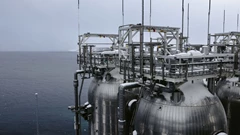
Scientists Say EU Carbon Market Should Include Removals Like CCS
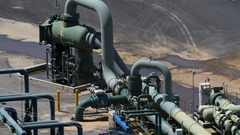
Trump Will Allow for More Gas Pipe Expansion, Southern CEO Says
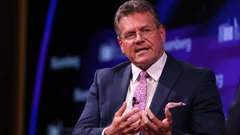
EU Trade Chief Says Ready to Work With US on Lower Tariffs
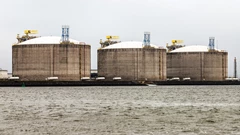
EU to Look at More ‘Flexible’ Filling of Gas Storage Post-2025
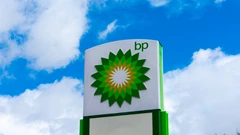
bp begins production from Raven Phase 2, offshore Egypt
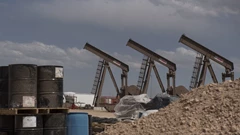
Diamondback Nears Permian Deal to Buy Shale Producer Double Eagle
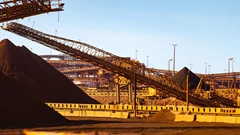
Australia’s Iron Ore Hub Reopens, Rio Mines Resume After Cyclone

Australia’s Iron Ore Export Hub to Reopen After Cyclone Weakens
















